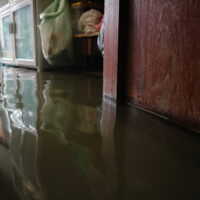What You Should Know about Black Mold Insurance Claims

Black mold is dangerous. It can grow in hidden areas of your home after a hurricane or other natural disaster, causing people in the home to become sick. If you have black mold growing, you need to get it cleaned up immediately otherwise your home could be uninhabitable. But making an insurance claim to pay for the remediation often sounds easier than it is.
Below, our Daytona Beach mold claim attorneys identify what you need to know about these claims. Please contact us if you have questions.
It Matters What Caused the Mold
Mold is typically caused by water leaks. However, the cause of the water leak will go a long way to determine whether your mold damage is covered by insurance. Consider the following:
-
Your pipes have been leaking because you have neglected to perform maintenance. In this example, it is unlikely that any homeowners’ policy will cover the damage since your own negligence is to blame.
-
Water got in through holes in the roof because you failed to get your roof fixed. Again, your own negligence seems to be to blame, so insurance will not cover it.
-
Floodwaters caused by a hurricane led to water damage. Flooding is not covered by a homeowner’s insurance policy. However, you might have a flood insurance policy.
-
Storm damage, such as high winds, damaged the roof and led to water intrusion. In this example, your homeowner’s insurance probably covers the damage.
As you can see, identifying the cause of the mold is critical to making a successful claim.
Your Policy Still Might Exclude Mold Damage
Most insurance contracts contain certain exclusions, and some of them exclude mold remediation, even if wind damage is covered. This means that you might have suffered water damage when the wind blew your roof off, but the policy still will not cover mold damage.
Read the fine print of your contract closely to see if mold damage is covered. If not, you will need to pay for remediation out of your own pocket.
Your Policy Might Not Cover the Full Costs of Remediation
Some insurance policies will pay to have damaged materials removed from your home. So if sheetrock has black mold growing on it, then the insurance policy will cover the cost of tearing out this damaged material.
But remediation also includes containment and clearance, which might not be covered by your policy. Before rushing out to hire someone to clean up the mold, you must fully understand what is and is not being covered.
Think Twice Before Cleaning Up Mold Yourself
After a natural disaster like a hurricane, mold remediation companies are often in high demand and could be too busy to come right out to your home. You might be tempted to dump some bleach in water, put on rubber gloves, and clean up mold yourself.
You can certainly clean up some mold if you follow government directions. But we encourage all homeowners to reach out to a company to check the full extent of damage. Any mold must be fully removed, otherwise it could spread again. It is often best to call in the experts.
When it comes to making an insurance claim, contact us. A Volusia County property damage lawyer at Bundza & Rodriguez can help.
Resource:
cdc.gov/mold/cleanup-guide.html
https://www.daytonalawyers.com/finding-the-right-contractor-after-a-hurricane/

